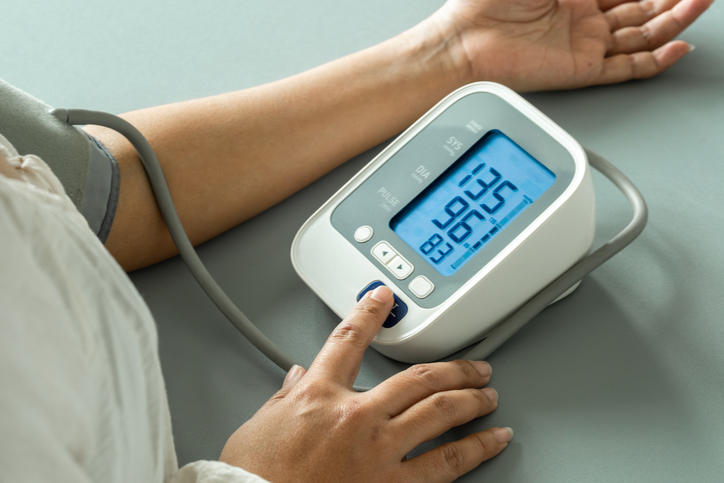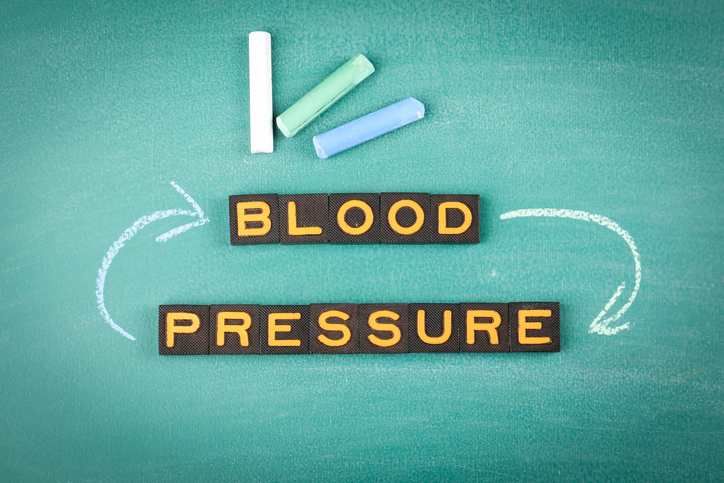
The number of individuals in the United States suffering from chronic hypertension during pregnancy doubled between 2008 and 2021, according to a new study published in Hypertension, a peer-reviewed journal of the American Heart Association (AHA).
Chronic hypertension in pregnancy is defined as having high blood pressure diagnosed before pregnancy or 20 weeks prior to pregnancy. Research has indicated that treatment of mild or moderate high blood pressure during pregnancy reduces the risk of severe hypertension and preeclampsia, which typically present after 20 weeks of pregnancy.
In 2017, the AHA and the American College of Cardiology (ACC) revised the high blood pressure reading criteria to diagnose hypertension from 140/90 mm Hg to 130/80 mm Hg for stage 1, and from 160/110 mm Hg to 140/90 mm Hg for stage 2. The updated clinical guideline recommends medication treatment for nonpregnant adults with stage 2 high blood pressure; for stage 1 high blood pressure in individuals with type 1 or type 2 diabetes, or kidney disease; and for stage 1 high blood pressure in individuals with established cardiovascular disease or without cardiovascular disease but with an estimated 10% or higher risk of developing atherosclerotic cardiovascular disease.
“We had hoped to see some impact from the 2017 guideline, which reduced the blood pressure threshold for treatment of hypertension. We were surprised to not find any meaningful changes from before and after the guideline,” said lead study author Stephanie Leonard, PhD, an epidemiologist and assistant professor in maternal-fetal medicine and obstetrics at Stanford University School of Medicine, via a press release. “While the rate of hypertension in pregnancy has doubled, the use of medication for treatment remained stable at only 60%, which we believe is likely below what it should be if patients are treated according to clinical guidelines.”
To conduct this study, researchers assessed private health insurance claims from 2007 to 2021. According to the results:
- The rate of high blood pressure diagnosis increased from 1.8% to 3.7% among 1.9 million pregnancies between 2008 and 2021, which amounts to a doubling in the rate of high blood pressure in pregnancy.
- The frequency of hypertension during pregnancy continued to rise steadily, without a spike in new diagnoses after the 2017 AHA/ACC hypertension guideline.
- The use of medication for high blood pressure treatment during pregnancy remained low and relatively stable, ranging from 57% to 60% over the 14-year study period.
“This study highlights the growing burden of chronic hypertension and poor cardiovascular health prepregnancy as critical targets to improve maternal health. These data are consistent with prior studies highlighting the increasing prevalence of hypertension from data from the National Vital Statistics System, which covers all births in the United States,” said Sadiya S. Khan, MD, M.Sc., FAHA, chair of the writing group for the AHA’s 2023 scientific statement. “Since nearly 1 in 3 individuals with chronic hypertension may face a pregnancy complication, the prevention and control of hypertension should be among the highest priorities for improving maternal health.”







 © 2025 Mashup Media, LLC, a Formedics Property. All Rights Reserved.
© 2025 Mashup Media, LLC, a Formedics Property. All Rights Reserved.